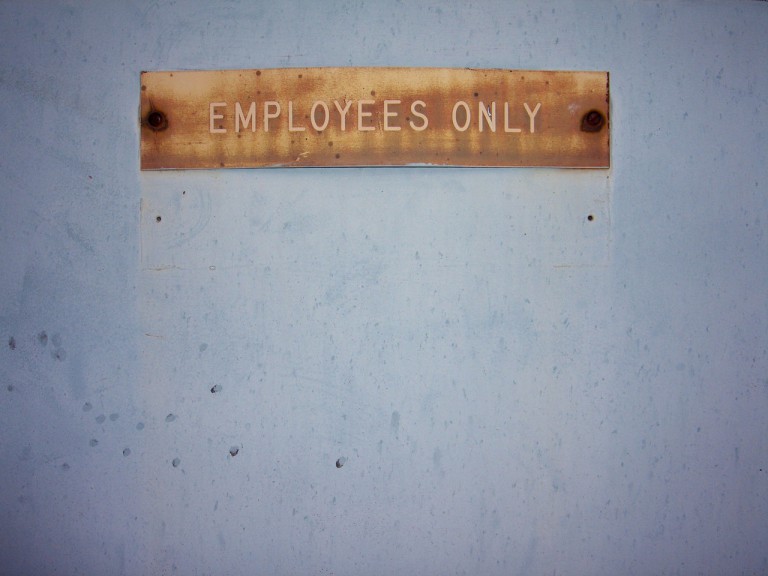[fusion_builder_container hundred_percent=”yes” overflow=”visible” type=”legacy”][fusion_builder_row][fusion_builder_column type=”1_1″ layout=”1_1″ background_position=”left top” background_color=”” border_color=”” border_style=”solid” spacing=”yes” background_image=”” background_repeat=”no-repeat” padding_top=”” padding_right=”” padding_bottom=”” padding_left=”” margin_top=”0px” margin_bottom=”0px” class=”” id=”” animation_type=”” animation_speed=”0.3″ animation_direction=”left” hide_on_mobile=”no” center_content=”no” min_height=”none” last=”true” hover_type=”none” link=”” border_position=”all” align_self=”flex-start” border_sizes_top=”” border_sizes_bottom=”” border_sizes_left=”” border_sizes_right=”” first=”true”][fusion_text]I talk a lot about finding great employees. A lot of good an awesome employee will do you if they up and quit. So, today, we’re going to talk about some of the top reasons employees quit their jobs. Hopefully, awareness will help you get ahead of the game and maybe avoid some of the pitfalls that may lead to your best employees leaving your company.
Work/Life Imbalance

From time to time, you may run across an employee who’ll work with the same dedication as you, the business owner. Kudos to you, if you find that employee or manage to raise an employee to that level. However, that should not be the expectation.
Keep in mind, a standard full-time workweek is 40 hours. Yes, some positions require overtime, and those expectations should be made clear upfront (prior to hiring). However, constantly surprising employees with work that interferes with their personal life is a no-no. A phrase my husband has said from time to time is “you can’t afford my free time.”
Lack of Opportunity
Few people want to work in a dead-end job. To be clear, a dead-end job refers to a position that leads to little or no chance to move into a higher paying position. I make this clarification to show that even those at the top of your company can fall into a dead-end job scenario. When the opportunities to advance end or if they were never there to begin with, you may find your employees leaving for companies which do offer opportunities for advancement. Also remember your employees often come with skills other than those you advertised in the job posting. Some of those skills may have taken years of experience and education to obtain. Though you may have hired an employee to perform specific tasks, keep in mind, they may have more to offer than what’s in their job description and want to share their other expertise.

Along with the skills they come to table with and want to keep sharp, employees may want to learn development skills or acquire new responsibilities. Lack of professional development opportunities can stagnate a job. Employees who find their jobs monotonous may seek out opportunities for professional growth. If you’re unable or unwilling to offer through your company, they may look for opportunities elsewhere.
Undervalued
First, let’s talk about fair compensation. In most areas, it’s an employer’s market. That is, the employer has an abundance of candidates to choose from. With supply and demand being on the employer’s side, it can create opportunities to underpay employees. Lowballing your employees can lead to feelings of resentment.
Fair compensation also comes into play amongst employees. Let’s face it. Some individuals are better at negotiating than others. As such, compensation may not always be based upon skills and experience. Though some companies put policies into place that prohibit the discussion of salary, don’t assume employees don’t talk. Like lowballing employees, wage disparities can also lead to resentment and a lack of job loyalty.
Finally, give credit where it’s due. Failing to recognize employees for jobs well done may make them feel unappreciated. This is something I feel I shouldn’t need to mention. However, I’ve seen it done in the past, so it need to be said. Don’t take credit for your employees’ successes. If you want to show you don’t value you’re employee, take credit for the great work they do, rather than showing you’re appreciation.
Micro/Macro management

On the flip side is to macro-manage employees. As I mentioned, you’re responsible for giving direction. Without a clear vision, employees can work aimlessly, never truly knowing if they’re on the right track. Lack of direction can degrade an employee’s job confidence. Being unaccessible is another sign of macro-management. Despite wanting independence and autonomy to work, employees shouldn’t be left to fumble and falter without anyone available to direct or answer questions. Even worse is the owner/supervisor who fails to properly manage then lays the blame on the employees.
Overworked

Don’t forget, even with overtime employees only have so many hours dedicated to work. Trying to cram too many tasks into one role can overwhelm an employee. When I think of an overworked employee, I think of an ineffective employee, employees who are spread too thin. Employees who are juggling too many tasks aren’t able to perform any of their duties effectively. People love being winners. When you overwork your employees to the point their ineffective, you put them into the position of losers.
Final thoughts
Employees want to be respected and appreciated. They want to grow and work for a winning company as winners. I know this post was a bit on the negative side, full of the doom and gloom of pushing employees away. Tomorrow, I’ll have solutions and talk about strategies to retain good employees.[/fusion_text][/fusion_builder_column][fusion_builder_column type=”1_1″ layout=”1_1″ background_position=”left top” background_color=”” border_color=”” border_style=”solid” spacing=”yes” background_image=”” background_repeat=”no-repeat” padding_top=”” padding_right=”” padding_bottom=”” padding_left=”” margin_top=”0px” margin_bottom=”0px” class=”” id=”” animation_type=”” animation_speed=”0.3″ animation_direction=”left” hide_on_mobile=”no” center_content=”no” min_height=”none” last=”true” hover_type=”none” link=”” border_position=”all” align_self=”flex-start” border_sizes_top=”” border_sizes_bottom=”” border_sizes_left=”” border_sizes_right=”” first=”true”][fusion_tagline_box shadow=”no” shadowopacity=”0.7″ border=”1px” highlightposition=”top” content_alignment=”left” link=”https://backboneamerica.com/work-with-me” linktarget=”_self” button=”Book a Free session” title=”Retaining employees can be a balancing act” description=”I’ll help you with your employee goals.” animation_type=”0″ animation_direction=”down” animation_speed=”0.1″ /][fusion_text][fusion_separator style_type=”shadow” hide_on_mobile=”small-visibility,medium-visibility,large-visibility” class=”” id=”” sep_color=”” top_margin=”” bottom_margin=”” border_size=”” icon=”” icon_circle=”” icon_circle_color=”” width=”” alignment=”center”][/fusion_separator]







